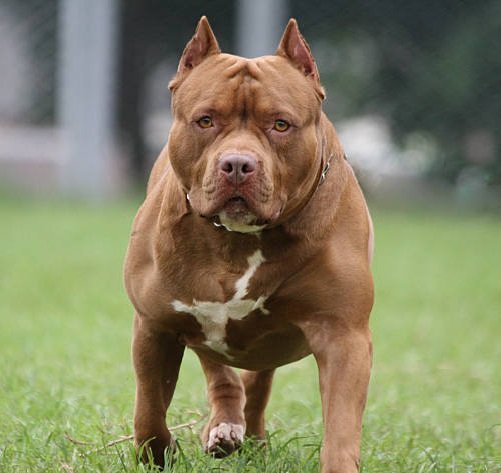Introduction: Lazy Dog
Lazy Dog are often celebrated for their energy, playfulness, and loyalty. However, not all dogs are bundles of energy. Some dogs prefer lounging on the sofa over running around the park. These dogs are commonly referred to as lazy dogs. While it might seem harmless, laziness in dogs can sometimes be a sign of health issues, poor diet, or lack of stimulation. In this comprehensive guide, we will explore the reasons behind a dog’s laziness, how to care for lazy dogs, and ways to keep them healthy and active.
What Does “Lazy Dog” Mean?
A lazy canine isn’t always really one which sleeps the masses. It refers to puppies that show low hobby levels, lack of enthusiasm for play or workout, and choice for relaxation over interaction. It’s critical to differentiate between a dog that enjoys calmness and a dog that is lethargic due to underlying issues.
Common Traits of Lazy Dogs
- Sleeps more than usual (14–18 hours an afternoon for adults)
- Avoids bodily interest
- Shows minimum hobby in toys or video video video video games
- Slow to reply to instructions or stimuli
- Prefers quiet regions over social interplay
Reasons Why Dogs Become Lazy
Dogs can also additionally moreover furthermore end up lazy because of numerous factors starting from breed developments to fitness troubles. Here are the number one reasons:
1. Breed Tendencies
Some breeds are clearly greater laid-all over again. For example:
| Breed | Average Activity Level | Notes |
|---|---|---|
| Bulldog | Low | Prone to obesity; prefers short walks |
| Basset Hound | Low | Loves lounging; low endurance |
| Shih Tzu | Low | Calm indoors, moderate play required |
| Great Dane | Medium | Big size limits high activity |
| Labrador Retriever | High | Requires daily exercise; not naturally lazy |
2. Age
Older dogs usually tend to gradual down due to joint pain, muscle loss, and reduced stamina. Puppies, conversely, are commonly very active and playful.
3. Health Issues
Lethargy in puppies can signal underlying scientific situations which incorporates:
| Health Issue | Symptoms | Action |
|---|---|---|
| Hypothyroidism | Weight gain, slow movement, hair loss | Vet consultation; hormone therapy |
| Arthritis | Stiffness, difficulty climbing stairs | Pain management, joint supplements |
| Obesity | Inactivity, breathing difficulty | Diet adjustment, controlled exercise |
| Heart Disease | Shortness of breath, fatigue | Veterinary care, medication |
4. Poor Diet
Dogs missing nutrients, nutrients, or right energy may not have enough strength for interest. Feeding your dog first-rate protein and a balanced weight loss plan is crucial.
Signs Your Dog is Unhealthy, Not Just Lazy
Sometimes, what seems like laziness is in reality a signal of contamination. Watch for the ones crimson flags:
- Excessive sleeping past regular hours
- Unusual weight advantage or loss
- Loss of urge for meals
- Aggression or irritability
- Difficulty strolling or trekking stairs
- Vomiting or diarrhea
Tip: Regular veterinary test-U.S.Are crucial for tracking your canine’s fitness and preventing headaches from a nation of no hobby.
Benefits of Managing a Lazy Dog’s Lifestyle
Even lazy puppies can live protracted, satisfied lifestyles if their health, food regimen, and workout are well controlled. Benefits of active manage embody:
- Improved cardiovascular fitness
- Weight control and decreased weight problems threat
- Enhanced intellectual stimulation
- Better digestion and metabolism
- Strengthened bond between proprietor and dog
Exercise Tips for Lazy Dogs
Getting a lazy canine to exercise may be tough, but with staying strength and right making plans, you could inspire interest:
1. Start Slow
Introduce brief walks (10–15 mins) instances in the afternoon and frequently increase periods.
2. Play Interactive Games
Engage them in fetch, tug-of-battle, or cope with puzzles. Use rewards to inspire participation.
3. Socialization
Invite exceptional friendly dogs for playdates. Sometimes, lazy dogs come to be lively when they see buddies playing.
4. Use Food as Motivation
Treats and food-doling out toys may additionally need to make hobby fun and worthwhile.
5. Incorporate Indoor Activities
If going outside is hard, strive for indoor sporting sports like stair trekking, obstacle publications, or chase video video video games.
Diet and Nutrition for Lazy Dogs
Proper vitamins perform an essential function in energy ranges, weight control, and commonplace fitness.
| Nutrient | Role | Sources |
|---|---|---|
| Protein | Muscle maintenance, energy | Chicken, fish, eggs, dog-specific protein food |
| Carbohydrates | Quick energy | Rice, sweet potatoes, oats |
| Fats | Essential for coat and energy | Fish oil, flaxseed oil, chicken fat |
| Vitamins & Minerals | Overall health, immunity | Vegetables, fruits, supplements if advised by vet |
Tip: Avoid overfeeding. Lazy dogs burn less power, making them vulnerable to weight troubles.
Training a Lazy Dog
Training a lazy dog requires motivation, endurance, and consistency. Here’s a smooth technique:
Positive Reinforcement
- Reward your dog for even small interest or obedience steps.
- Use treats, praise, and affection.
Set Daily Goals
- Aim for 5–10 mins of focused schooling periods a couple of times a day.
Gradual Challenges
- Introduce new sports activities gradually.
- Encourage taking walks taken into consideration one in every of a kind terrains or attempting new toys.
Monitor Progress
- Keep a mag of sports activities, meals, and behavior to music enhancements.
Mental Stimulation for Lazy Dogs
Lazy dogs regularly are through a manner of boredom, that could result in depression or adverse conduct. Keep them mentally lively with:
- Puzzle feeders
- Scent video video games
- Hide-and-are seeking out
- Training periods with new instructions
Common Misconceptions About Lazy Dogs
- “All lazy puppies are terrible” – Not real; a few breeds obviously opt for relaxation.
- “Lazy dogs can not study” – False; they actually want simply considered one of a kind motivation.
- “Lazy puppies don’t want socialization” – Incorrect; they gain from interplay like a few one-of-a-type canines.
When to Consult a Veterinarian
If your dog shows sudden lethargy, loss of urge for meals, or extraordinary uncommon symptoms, seek advice from a vet right away. Health troubles like diabetes, coronary coronary coronary heart troubles, or arthritis are not unusual in sedentary dogs.
Read More: Can Dogs Eat Pork?
Lazy Dog Care Routine
Here’s an instance of a daily care everyday for a lazy dog:
| Time | Activity | Notes |
|---|---|---|
| 7:00 AM | Morning walk (10 min) | Short, gentle walk |
| 8:00 AM | Breakfast | Balanced meal with protein & carbs |
| 12:00 PM | Rest | Quiet time or nap |
| 3:00 PM | Indoor play | Fetch, tug, or puzzle games |
| 6:00 PM | Evening walk (15 min) | Slightly longer walk |
| 7:00 PM | Dinner | Portion-controlled, healthy diet |
| 9:00 PM | Bonding time | Petting, grooming, or cuddle session |
| 10:00 PM | Sleep | Comfortable, quiet sleeping area |
Tips to Keep Lazy Dogs Healthy and Happy
- Regular veterinary check-ups
- Balanced food regimen and element manipulate
- Daily physical and intellectual exercise
- Maintain weight internal wholesome range
- Provide a cushty, pressure-free surroundings
- Encourage extremely good reinforcement in education
Conclusion
Lazy dogs might not be as energetic as special breeds, however with the right care, healthy diet, weight-reduction plan, exercise, and intellectual stimulation, they’re able to live prolonged, healthful, and satisfied lives. Understanding the reasons in their laziness, tracking for health issues, and growing a normal appropriate to their desires are key to making sure a content and energetic partner. Remember, persistence and consistency are important at the same time as coping with a lazy canine – in the end, even the slowest canine can deliver massive pride and love to your property.
Disclaimer
The information provided in this article about lazy dogs is for educational and informational purposes only. It is not a substitute for professional veterinary advice. Always consult a qualified veterinarian regarding your dog’s health, diet, or exercise needs before making any changes to their routine.





